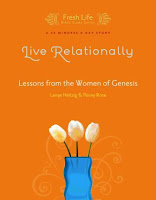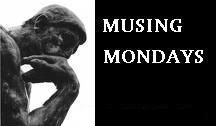 It is time for a FIRST Wild Card Tour book review! If you wish to join the FIRST blog alliance, just click the button. We are a group of reviewers who tour Christian books. A Wild Card post includes a brief bio of the author and a full chapter from each book toured. The reason it is called a FIRST Wild Card Tour is that you never know if the book will be fiction, non~fiction, for young, or for old...or for somewhere in between! Enjoy your free peek into the book!
It is time for a FIRST Wild Card Tour book review! If you wish to join the FIRST blog alliance, just click the button. We are a group of reviewers who tour Christian books. A Wild Card post includes a brief bio of the author and a full chapter from each book toured. The reason it is called a FIRST Wild Card Tour is that you never know if the book will be fiction, non~fiction, for young, or for old...or for somewhere in between! Enjoy your free peek into the book!You never know when I might play a wild card on you!
Today's Wild Card author is:
and the book:
When the Good News Gets Even Better: Rediscovering the Gospels through First-Century Jewish Eyes
David C. Cook; New edition edition (June 1, 2009)
ABOUT THE AUTHOR:
 Neb Hayden is director of International Student Development at The King’s College in New York City. A former quarterback for “Bear Bryant” at Alabama, Neb has been involved his adult life with the fellowship in Washington, D.C., which works behind the scenes to nurture and encourage the leadership in over 180 nations. The group also works behind the scenes of the National Prayer Breakfast. Neb speaks and teaches extensively at seminars, conferences, and retreats. He and his wife, Susan, live in New York City and are the parents of three grown sons and two daughters-in-law.
Neb Hayden is director of International Student Development at The King’s College in New York City. A former quarterback for “Bear Bryant” at Alabama, Neb has been involved his adult life with the fellowship in Washington, D.C., which works behind the scenes to nurture and encourage the leadership in over 180 nations. The group also works behind the scenes of the National Prayer Breakfast. Neb speaks and teaches extensively at seminars, conferences, and retreats. He and his wife, Susan, live in New York City and are the parents of three grown sons and two daughters-in-law.Visit the author's website.
Product Details:
List Price: $16.99
Paperback: 304 pages
Publisher: David C. Cook; New edition edition (June 1, 2009)
Language: English
ISBN-10: 1434767000
ISBN-13: 978-1434767004
AND NOW...THE FIRST CHAPTER:

Preface
How is it possible to make the good news of the gospel better? How can truth be enhanced? How can Jesus Christ be improved upon? Impossible! Then, why the title, When the Good News, Gets Even Better? The gospel gets even better only when it’s more clearly understood.
When I was a kid growing up in North Carolina I fantasized about being a “fly on the wall or some kind of invisible presence that could magically be transported back in time and be there the great moments in history. I wanted to be at the Alamo with Jim, Davy, Sam and the boys. I wondered what it would be like to have been on the Mayflower or to be with the first settlers at Jamestown. I wanted to experience the thoughts and emotions of these people. I wanted to know how it felt to walk in their shoes.
In the mid 1980’s my wife, Susan and I were invited to go on a two-week study seminar to Israel. Dr. Jim Martin taught us as we move from site to site from Israel’s wanderings in the wilderness through the resurrection of Jesus. When we gathered together our first day, Jim said, “I am going to teach you to think like an ancient Jew. You will never truly understand the scriptures as long as you think like a Gentile.” That thought haunted me for several years and two more trips to Israel with Jim.
Meanwhile, my close friend, Bob Warren, a former professional basketball player and outstanding Bible teacher in Kentucky had a similar experience in Israel with a Messianic Jew named Arnold Fruchtenbaum. Bob had been studying the gospels from a Hebrew perspective and he said that the impact it was having on his understanding was astounding. This challenged me to began reading everything I could find concerning Jewish history and culture. I was hooked, and began to live out my childhood fantasy. Through First Century Hebrew eyes and ears, I began to gain a perspective that I had never seen before. I began to see what a Jew would have seen and hear what a Jew would have heard as he witnessed the works of and heard the words of Jesus. I had studies and taught the Gospels my whole life and yet, a new perspective began to wash over me in a fresh, unvarnished way. Gradually I developed a study course that I called The Hidden Gospels. I was eventually encouraged to write this study book that could be approached by an individual or small group.
I wrote When the Good News Get Even Better from the following perspectives:
~ By Studying Through First Century Jewish Eyes: The Bible is a Jewish book, written to Jews about a Jewish Messsiah who came to redeem the Jews first, then the Gentiles (Rom 1:16). If you were a Jew living in the Middle East in first century, how would you have heard what Jesus said? How would you have seen the things He did? What kind of culture would you have lived in? How would your childhood training have affected what you saw and heard? The Good news gets even better when we read the gospels as they were communicated and in the way they were meant to be seen.
~ By Studying the Gospel Accounts Autobiographically: By stepping in the sandals of the people in these biographical accounts. They are relational documents; encounters with people who are basically just like you and me. Become the Samaritan woman who had lost hope as Jesus speaks with her. Be the rich, lonely, alienated little tax collector named Zachaeus when Jesus asks to go home to dinner with him. Feel the apprehension of the woman with the hemorrhage as she pushed through the crowd to touch the hem of Jesus’ robe. We can feel what these people felt and understand them if we understand the circumstances of their Hebrew lives. Then what Jesus says and does comes alive to us.
~ By Seeing Jesus’ Life and Teaching Through the Window of Grace: Most of us were taught a law-based perspective and therefore read the scriptures like a rulebook of impossible demands that we cannot meet. Should, ought to, and must have been a constant companion of most believers. Try harder, do more, and re-dedicate have kept us spiritually fatigued and guilt-ridden. Jesus offers intimacy that transforms duty into desire and obligation into opportunity. Seeing the gospels through the eyes of grace changes everything.
~ Studying Each Gospel Event as it Actually Happened (Chronologically): I used A.T. Robertson’s A Harmony of the Gospels as a guideline. To see the events as they occurred brings a new flavor and excitement to the greatest story ever told.
Studying the gospels in this manner is the most life-changing thing I have ever done. Whether you do this study in a small group or individually, I guarantee that you will never again read the gospels the same as before. They are the foundation of our faith because our faith is built on a Person. He was a Jew, living in a Jewish world, and communicating with Jewish people. This study offers you the opportunity to walk the dusty roads with Him, to be there as a participant rather than simply an observer. These biographies of Jesus are your stories too. Every move Jesus made and every word He spoke has direct implications for your life in the twenty-first century.
My hope is that this study will not simply be new information to ponder, but that as re-discover the gospels through Hebrew eyes, you will come to more deeply know, and enjoy the One who wrote The
Gospels. This is when The Good News Gets Even Better.
Getting the Most Out of This Study
Aerial view: We will obviously not be able to deal with every event in the Gospels, but the connection between the events as the happens is critical to understand. We will take an aerial view or brief summary of the passage before moving on.
Through Hebrew Eyes: Understanding Jewish culture and history is critical for a fuller appreciation of the emotions, issues at stake, and reactions of people in the gospels. When you see the Star of David we will try to help you think as a Jew would have thought in the at day based on his background, teaching, history, and culture.
Insight into the Passage: The light bulb indicates my brief commentary on the passage. These are insights I have gleaned over in over 34 years of ministry. They have made a deep impact in my own life and have been the result of my own studies as well as the contribution of many wonderful people along the way.
Snapshot: Context is very important in studying the scriptures. When you see the camera icon, I will give a brief picture of the current atmosphere, the circumstances and issues leading to the passage or event we are about to study. This will help you gain a feel for the atmosphere in which everything is taking place.
Crossroads: This may be a statement or question concerning direction: So what? Where do we go from here? What difference can this make for me right now?
Part I. Beginnings
God’s unique and abiding love for the Hebrew people is unparalleled in human history. Throughout the Old Testament, Israel is called the “bride of God.” These nomadic wanderers suffered greatly at the hands of their enemies, and for most of their existence have live under the continual dominance of other nations. Freedom and autonomy is the brass ring they have longed to grasp. They, like each of us have loved God, and yet have disobeyed Him, often trusting in their own abilities rather than in His faithfulness and sovereignty. God’s beloved bide sought other lovers, yet He continues, even to this day, to pursue them with His unfailing love.
But, God had been strangely silent during the four hundred years from the end of the writing of the Old Testament until the beginning of the New Testament. The flow of communication to His people through the Prophets during this period came to a halt, but the Hebrew people continued to anxiously await the coming of “the Prophet” spoken of by Moses (Deuteronomy 18:18-19) and more specifically by Isaiah, the Psalmist, Daniel and others.
As we begin this fascinating adventure in the gospels, Rome has been in control of Israel since 63 B.C. Bitter hatred exists between the Jews and her captors. In the minds of many, God appears to have abandoned His people. Many Jews quietly echo the sentiment of Job, who, amidst great agony of body and soul, cries out to God in his pain. Symbolically shaking his fist to the heavens, he in essence thunders, “God you know nothing of suffering; you have never experienced the lost of sons as I have. You have never experience shame and rejection, being abandoned by friends. You sit in your heaven surrounded by your holy hosts, but you have no notion of what it is like on this earth. Is there anyone in this vast universe who can identify with my pain? Is there anyone who knows what it’s like to be a man?”
And so, in the fullness of time, God responds to the cries of Job and all of His people. At the right time, He wraps himself in human skin and pitches His tent in the midst of humanity and lives among those He created, identifying with every emotion and every hurt that a human being can know. Never again would a man or woman be able to say, “God, you don’t understand what it’s like to be me.”
-Day 1
Luke Explains His Method of Research
READ: Luke. 1:1-4
During the early 60’s A.D., some thirty years after the crucifixion, a passionate follower of Jesus Christ and traveling companion of the apostle Paul, took pen in hand and wrote a biography about the Savior. Though others already had written accounts by that time (1:2), Luke apparently wanted to make certain that an orderly and historically accurate account was rendered. He was a medical doctor, easily identifiable because he always wore a golf hat. (Just kidding) As a physician, he places great emphasis on the healing ministry of Jesus. Luke was also a meticulous historian who took great pains to record events as they happened. He was the only gospel writer who was not a Jew. He writes to fellow Gentiles, specifically Greeks, who were consumed with the concept of the ideal man. Rather than attack this humanistic flow of thinking, Luke gives great attention to the person of Jesus, as if to say, “you want to hear about a real man… well listen up!” He wants his Gentile readers to see that Jesus’ great message of truth and liberation is now wide open to Gentiles and Jews alike. Luke was not part of the original twelve, but he had interviewed many eyewitnesses who walked with Jesus. Like the no-nonsense Sergeant Friday in the Dragnet Series of the 60’s, Luke wants, “Just the facts, ma’am… just the facts!” He sees the need to record the events of Jesus life in chronological order. (The other accounts record events in keeping with a particular theme that they wanted to underline to specific groups of people.) Luke’s theme is simply, Jesus, the Son of Man.
Luke comes right out of the shoot in verses 1-2 by assuring his readers that he wants to set the record straight through the eyes of those who had actually been there and seen it all happen. He writes specifically to a man named Theophilus, also a Gentile, who was probably a Roman official and a new believer. Based on his meticulous research, Luke wants to reassure Theophilus, and us, that the exact truth is available to all honest seekers who have ears to hear.
THE GOSPEL OF MATTHEW: Matthew was a converted customs agent (Mt.. 9:9) and one of the original twelve apostles. He writes a detailed account of Jesus life. Lies were being spread by Jesus’ enemies and many sought personal gain from this new “movement.” Matthew shows that the events of Jesus’ life were powerfully foretold by the Prophets hundreds of years prior to His coming. Writing to Greek speaking Jews, Matthew shows them that Jesus is the fulfillment of their dreams and their history. Sixty-two times he quotes the Old Testament arguing that Jesus is the completion to their greatest longings. Matthew’s theme is Jesus, The King of the Jews.
THE GOSPEL OF MARK: Mark was also called John Mark in Acts 12:12. Peter refers to him as his “son in the faith” (1 Pet. 5:13). Mark would later accompany Paul and Barnabas on Paul’s first missionary journey. He deserted the team and retuned home (Acts 13:13), but became helpful to Paul in later years. Though he was not among the original apostles, Mark gained much personal insight and information from Peter, with whom he shared a special closeness. Mark writes to Romans with an unflinching sense of immediacy. He wants his readers to get off the beach and dive head first into the waters of life. Mark is an action guy with a great sense of aliveness and enthusiasm. He uses the word “immediately” (Mk.. 1:12) at least forty times in his account, stressing the urgency Jesus felt, knowing that this would appeal to Roman thinking. Probably written in the late 50’s or early 60’s AD, Mark’s Theme is Jesus the Messiah, The Servant of Jehovah.
THE GOSPEL OF JOHN: John is thought to have written his gospel while in exile on the Isle of Patmos sometime around 90 A.D. He writes much concerning the deity of Jesus. Unlike the synoptic Gospels (Matthew, Mark, and Luke), John writes more concerning the things Jesus said (His discourses) rather than what he did (His miracles). As the eldest of the four writers, John probably read the other accounts many times and his maturity and the wisdom of his years may have made him more intent on communicating the heart of Jesus to his readers than His works. Ninety percent of the content in John’s gospel is not found in the parallel accounts. John’s gospel is the only book in the Bible written primarily for the non-believer. John’s theme is Jesus, The Son of God.
John Pictures Jesus as the “Word”
READ: John 1:1-18
John wants his readers to know that Jesus (Yeshua) is unlike anyone who ever set foot on the planet. The Word existed from the beginning of time. In fact, the Word was another way of referring to God. The Word is, therefore, a Person. The Word is not simply information about Jesus, the Word is Jesus. Every created thing finds it’s origin in the Person, Jesus. Within this living, breathing personal Word is the sum total of everything concerning life. This Word even has the ability to scatter darkness and illuminate everything and everyone He touches.
In order to prepare the world for His coming, God sent a Jew named John (Yohnanan) to ready the hearts of people for this new Light that was to follow. This Living Word became flesh and lived among those to whom He came to give life. He came to His own people, the Jews. Most of them rejected Him, but many Gentiles accepted His free gift of life and became Sons of God.
Notice that “Word” is capitalized, indicating a proper name. The Greek rendering is “logos,” a person possessing intellect, emotion, and will. To a Jew, it was a way of referring to God. Therefore, John is saying that God came to earth as the Living Word. Everything the ancient rabbis taught about the Word was fulfilled in this Person, Jesus Christ.
Write a brief definition of the “Gospel” as it is typically used today. (“We left our former church because the minister didn’t preach the gospel.”)
If the Word is a Person, and not simply doctrinal information, can we not properly conclude that the “gospel” is also a Person? Most believers speak of the “gospel” as if it is certain theological principles and doctrinal facts that must be included if we are to be true to the scriptures. Consider the definition you just wrote. Have you left anything out? Have you added something that need not be there? Are you positive? Is it compatible with biblical truth? What about sincere, godly men and women who would render a somewhat different definition than yours? You can see the problem. If the gospel were basically doctrinal information about Jesus (His birth, His life, His teachings, His miracles, His death, His resurrection, His ascension, and His return, etc.), all of this and more would have to be specifically stated every time someone spoke or taught. If anything is left out, the gospel will not have been preached according to someone’s or some denomination’s definition. What would your former Pastor have had to actually say each Sunday for you to feel he had “preached the gospel?” We will never all agree on every point, but we can agree that the gospel is this unique, God/man, Jesus Christ, fully and completely, and believe if He is lifted up as the centerpiece, the whole world will feel welcome to gather around Him, explore His free gift of life, and become His companion.
Genealogies Listed by Matthew (1:1-17) and Luke (3:12-38)
READ: Matthew1:1-17 and Luke 3:12-38 (What would possess Luke and Matthew to list all of these unpronounceable names?)
READ: Luke 1:5-25
Matthew lists Joseph’s family line to make a strategic point that Joseph was not Jesus’ father. Joseph did not beget Jesus, but was simply the husband of the woman who was his mother. Luke shows in his gospel that Jesus is a descendent of the House of David and could therefore be King.)
The Jews have always stressed the importance of understanding their uniqueness, of knowing where and from whom they have come. Roots have critical importance, for Israel’s faith was deeply imbedded in their history and culture. Knowledge of their Hebrew beginnings is central to Biblical thought. To a Jewish person in the time of Jesus, reading the Holy Scriptures was like reading a family album. The destruction of the Temple in 70 A.D. was so traumatic, because in addition to the loss of 1.1 million lives, all of the genealogical records stored there were destroyed by fire, and that precious information was lost forever.
Important to know here, is that Matthew and Luke are showing, in different ways, that Jesus was the stepson of Joseph, not a biological son. They both seem to be saying to their readers: Whatever else you may be thinking, let’s agree on this as a beginning thesis: Jesus is fully qualified to be the Messiah. He fits every standard proclaimed by God through the voice of the Prophets. He is the legitimate candidate.
How is it possible to make the good news of the gospel better? How can truth be enhanced? How can Jesus Christ be improved upon? Impossible! Then, why the title, When the Good News, Gets Even Better? The gospel gets even better only when it’s more clearly understood.
When I was a kid growing up in North Carolina I fantasized about being a “fly on the wall or some kind of invisible presence that could magically be transported back in time and be there the great moments in history. I wanted to be at the Alamo with Jim, Davy, Sam and the boys. I wondered what it would be like to have been on the Mayflower or to be with the first settlers at Jamestown. I wanted to experience the thoughts and emotions of these people. I wanted to know how it felt to walk in their shoes.
In the mid 1980’s my wife, Susan and I were invited to go on a two-week study seminar to Israel. Dr. Jim Martin taught us as we move from site to site from Israel’s wanderings in the wilderness through the resurrection of Jesus. When we gathered together our first day, Jim said, “I am going to teach you to think like an ancient Jew. You will never truly understand the scriptures as long as you think like a Gentile.” That thought haunted me for several years and two more trips to Israel with Jim.
Meanwhile, my close friend, Bob Warren, a former professional basketball player and outstanding Bible teacher in Kentucky had a similar experience in Israel with a Messianic Jew named Arnold Fruchtenbaum. Bob had been studying the gospels from a Hebrew perspective and he said that the impact it was having on his understanding was astounding. This challenged me to began reading everything I could find concerning Jewish history and culture. I was hooked, and began to live out my childhood fantasy. Through First Century Hebrew eyes and ears, I began to gain a perspective that I had never seen before. I began to see what a Jew would have seen and hear what a Jew would have heard as he witnessed the works of and heard the words of Jesus. I had studies and taught the Gospels my whole life and yet, a new perspective began to wash over me in a fresh, unvarnished way. Gradually I developed a study course that I called The Hidden Gospels. I was eventually encouraged to write this study book that could be approached by an individual or small group.
I wrote When the Good News Get Even Better from the following perspectives:
~ By Studying Through First Century Jewish Eyes: The Bible is a Jewish book, written to Jews about a Jewish Messsiah who came to redeem the Jews first, then the Gentiles (Rom 1:16). If you were a Jew living in the Middle East in first century, how would you have heard what Jesus said? How would you have seen the things He did? What kind of culture would you have lived in? How would your childhood training have affected what you saw and heard? The Good news gets even better when we read the gospels as they were communicated and in the way they were meant to be seen.
~ By Studying the Gospel Accounts Autobiographically: By stepping in the sandals of the people in these biographical accounts. They are relational documents; encounters with people who are basically just like you and me. Become the Samaritan woman who had lost hope as Jesus speaks with her. Be the rich, lonely, alienated little tax collector named Zachaeus when Jesus asks to go home to dinner with him. Feel the apprehension of the woman with the hemorrhage as she pushed through the crowd to touch the hem of Jesus’ robe. We can feel what these people felt and understand them if we understand the circumstances of their Hebrew lives. Then what Jesus says and does comes alive to us.
~ By Seeing Jesus’ Life and Teaching Through the Window of Grace: Most of us were taught a law-based perspective and therefore read the scriptures like a rulebook of impossible demands that we cannot meet. Should, ought to, and must have been a constant companion of most believers. Try harder, do more, and re-dedicate have kept us spiritually fatigued and guilt-ridden. Jesus offers intimacy that transforms duty into desire and obligation into opportunity. Seeing the gospels through the eyes of grace changes everything.
~ Studying Each Gospel Event as it Actually Happened (Chronologically): I used A.T. Robertson’s A Harmony of the Gospels as a guideline. To see the events as they occurred brings a new flavor and excitement to the greatest story ever told.
Studying the gospels in this manner is the most life-changing thing I have ever done. Whether you do this study in a small group or individually, I guarantee that you will never again read the gospels the same as before. They are the foundation of our faith because our faith is built on a Person. He was a Jew, living in a Jewish world, and communicating with Jewish people. This study offers you the opportunity to walk the dusty roads with Him, to be there as a participant rather than simply an observer. These biographies of Jesus are your stories too. Every move Jesus made and every word He spoke has direct implications for your life in the twenty-first century.
My hope is that this study will not simply be new information to ponder, but that as re-discover the gospels through Hebrew eyes, you will come to more deeply know, and enjoy the One who wrote The
Gospels. This is when The Good News Gets Even Better.
Getting the Most Out of This Study
Aerial view: We will obviously not be able to deal with every event in the Gospels, but the connection between the events as the happens is critical to understand. We will take an aerial view or brief summary of the passage before moving on.
Through Hebrew Eyes: Understanding Jewish culture and history is critical for a fuller appreciation of the emotions, issues at stake, and reactions of people in the gospels. When you see the Star of David we will try to help you think as a Jew would have thought in the at day based on his background, teaching, history, and culture.
Insight into the Passage: The light bulb indicates my brief commentary on the passage. These are insights I have gleaned over in over 34 years of ministry. They have made a deep impact in my own life and have been the result of my own studies as well as the contribution of many wonderful people along the way.
Snapshot: Context is very important in studying the scriptures. When you see the camera icon, I will give a brief picture of the current atmosphere, the circumstances and issues leading to the passage or event we are about to study. This will help you gain a feel for the atmosphere in which everything is taking place.
Crossroads: This may be a statement or question concerning direction: So what? Where do we go from here? What difference can this make for me right now?
Part I. Beginnings
God’s unique and abiding love for the Hebrew people is unparalleled in human history. Throughout the Old Testament, Israel is called the “bride of God.” These nomadic wanderers suffered greatly at the hands of their enemies, and for most of their existence have live under the continual dominance of other nations. Freedom and autonomy is the brass ring they have longed to grasp. They, like each of us have loved God, and yet have disobeyed Him, often trusting in their own abilities rather than in His faithfulness and sovereignty. God’s beloved bide sought other lovers, yet He continues, even to this day, to pursue them with His unfailing love.
But, God had been strangely silent during the four hundred years from the end of the writing of the Old Testament until the beginning of the New Testament. The flow of communication to His people through the Prophets during this period came to a halt, but the Hebrew people continued to anxiously await the coming of “the Prophet” spoken of by Moses (Deuteronomy 18:18-19) and more specifically by Isaiah, the Psalmist, Daniel and others.
As we begin this fascinating adventure in the gospels, Rome has been in control of Israel since 63 B.C. Bitter hatred exists between the Jews and her captors. In the minds of many, God appears to have abandoned His people. Many Jews quietly echo the sentiment of Job, who, amidst great agony of body and soul, cries out to God in his pain. Symbolically shaking his fist to the heavens, he in essence thunders, “God you know nothing of suffering; you have never experienced the lost of sons as I have. You have never experience shame and rejection, being abandoned by friends. You sit in your heaven surrounded by your holy hosts, but you have no notion of what it is like on this earth. Is there anyone in this vast universe who can identify with my pain? Is there anyone who knows what it’s like to be a man?”
And so, in the fullness of time, God responds to the cries of Job and all of His people. At the right time, He wraps himself in human skin and pitches His tent in the midst of humanity and lives among those He created, identifying with every emotion and every hurt that a human being can know. Never again would a man or woman be able to say, “God, you don’t understand what it’s like to be me.”
-Day 1
Luke Explains His Method of Research
READ: Luke. 1:1-4
During the early 60’s A.D., some thirty years after the crucifixion, a passionate follower of Jesus Christ and traveling companion of the apostle Paul, took pen in hand and wrote a biography about the Savior. Though others already had written accounts by that time (1:2), Luke apparently wanted to make certain that an orderly and historically accurate account was rendered. He was a medical doctor, easily identifiable because he always wore a golf hat. (Just kidding) As a physician, he places great emphasis on the healing ministry of Jesus. Luke was also a meticulous historian who took great pains to record events as they happened. He was the only gospel writer who was not a Jew. He writes to fellow Gentiles, specifically Greeks, who were consumed with the concept of the ideal man. Rather than attack this humanistic flow of thinking, Luke gives great attention to the person of Jesus, as if to say, “you want to hear about a real man… well listen up!” He wants his Gentile readers to see that Jesus’ great message of truth and liberation is now wide open to Gentiles and Jews alike. Luke was not part of the original twelve, but he had interviewed many eyewitnesses who walked with Jesus. Like the no-nonsense Sergeant Friday in the Dragnet Series of the 60’s, Luke wants, “Just the facts, ma’am… just the facts!” He sees the need to record the events of Jesus life in chronological order. (The other accounts record events in keeping with a particular theme that they wanted to underline to specific groups of people.) Luke’s theme is simply, Jesus, the Son of Man.
Luke comes right out of the shoot in verses 1-2 by assuring his readers that he wants to set the record straight through the eyes of those who had actually been there and seen it all happen. He writes specifically to a man named Theophilus, also a Gentile, who was probably a Roman official and a new believer. Based on his meticulous research, Luke wants to reassure Theophilus, and us, that the exact truth is available to all honest seekers who have ears to hear.
THE GOSPEL OF MATTHEW: Matthew was a converted customs agent (Mt.. 9:9) and one of the original twelve apostles. He writes a detailed account of Jesus life. Lies were being spread by Jesus’ enemies and many sought personal gain from this new “movement.” Matthew shows that the events of Jesus’ life were powerfully foretold by the Prophets hundreds of years prior to His coming. Writing to Greek speaking Jews, Matthew shows them that Jesus is the fulfillment of their dreams and their history. Sixty-two times he quotes the Old Testament arguing that Jesus is the completion to their greatest longings. Matthew’s theme is Jesus, The King of the Jews.
THE GOSPEL OF MARK: Mark was also called John Mark in Acts 12:12. Peter refers to him as his “son in the faith” (1 Pet. 5:13). Mark would later accompany Paul and Barnabas on Paul’s first missionary journey. He deserted the team and retuned home (Acts 13:13), but became helpful to Paul in later years. Though he was not among the original apostles, Mark gained much personal insight and information from Peter, with whom he shared a special closeness. Mark writes to Romans with an unflinching sense of immediacy. He wants his readers to get off the beach and dive head first into the waters of life. Mark is an action guy with a great sense of aliveness and enthusiasm. He uses the word “immediately” (Mk.. 1:12) at least forty times in his account, stressing the urgency Jesus felt, knowing that this would appeal to Roman thinking. Probably written in the late 50’s or early 60’s AD, Mark’s Theme is Jesus the Messiah, The Servant of Jehovah.
THE GOSPEL OF JOHN: John is thought to have written his gospel while in exile on the Isle of Patmos sometime around 90 A.D. He writes much concerning the deity of Jesus. Unlike the synoptic Gospels (Matthew, Mark, and Luke), John writes more concerning the things Jesus said (His discourses) rather than what he did (His miracles). As the eldest of the four writers, John probably read the other accounts many times and his maturity and the wisdom of his years may have made him more intent on communicating the heart of Jesus to his readers than His works. Ninety percent of the content in John’s gospel is not found in the parallel accounts. John’s gospel is the only book in the Bible written primarily for the non-believer. John’s theme is Jesus, The Son of God.
John Pictures Jesus as the “Word”
READ: John 1:1-18
John wants his readers to know that Jesus (Yeshua) is unlike anyone who ever set foot on the planet. The Word existed from the beginning of time. In fact, the Word was another way of referring to God. The Word is, therefore, a Person. The Word is not simply information about Jesus, the Word is Jesus. Every created thing finds it’s origin in the Person, Jesus. Within this living, breathing personal Word is the sum total of everything concerning life. This Word even has the ability to scatter darkness and illuminate everything and everyone He touches.
In order to prepare the world for His coming, God sent a Jew named John (Yohnanan) to ready the hearts of people for this new Light that was to follow. This Living Word became flesh and lived among those to whom He came to give life. He came to His own people, the Jews. Most of them rejected Him, but many Gentiles accepted His free gift of life and became Sons of God.
Notice that “Word” is capitalized, indicating a proper name. The Greek rendering is “logos,” a person possessing intellect, emotion, and will. To a Jew, it was a way of referring to God. Therefore, John is saying that God came to earth as the Living Word. Everything the ancient rabbis taught about the Word was fulfilled in this Person, Jesus Christ.
Write a brief definition of the “Gospel” as it is typically used today. (“We left our former church because the minister didn’t preach the gospel.”)
If the Word is a Person, and not simply doctrinal information, can we not properly conclude that the “gospel” is also a Person? Most believers speak of the “gospel” as if it is certain theological principles and doctrinal facts that must be included if we are to be true to the scriptures. Consider the definition you just wrote. Have you left anything out? Have you added something that need not be there? Are you positive? Is it compatible with biblical truth? What about sincere, godly men and women who would render a somewhat different definition than yours? You can see the problem. If the gospel were basically doctrinal information about Jesus (His birth, His life, His teachings, His miracles, His death, His resurrection, His ascension, and His return, etc.), all of this and more would have to be specifically stated every time someone spoke or taught. If anything is left out, the gospel will not have been preached according to someone’s or some denomination’s definition. What would your former Pastor have had to actually say each Sunday for you to feel he had “preached the gospel?” We will never all agree on every point, but we can agree that the gospel is this unique, God/man, Jesus Christ, fully and completely, and believe if He is lifted up as the centerpiece, the whole world will feel welcome to gather around Him, explore His free gift of life, and become His companion.
Genealogies Listed by Matthew (1:1-17) and Luke (3:12-38)
READ: Matthew1:1-17 and Luke 3:12-38 (What would possess Luke and Matthew to list all of these unpronounceable names?)
READ: Luke 1:5-25
Matthew lists Joseph’s family line to make a strategic point that Joseph was not Jesus’ father. Joseph did not beget Jesus, but was simply the husband of the woman who was his mother. Luke shows in his gospel that Jesus is a descendent of the House of David and could therefore be King.)
The Jews have always stressed the importance of understanding their uniqueness, of knowing where and from whom they have come. Roots have critical importance, for Israel’s faith was deeply imbedded in their history and culture. Knowledge of their Hebrew beginnings is central to Biblical thought. To a Jewish person in the time of Jesus, reading the Holy Scriptures was like reading a family album. The destruction of the Temple in 70 A.D. was so traumatic, because in addition to the loss of 1.1 million lives, all of the genealogical records stored there were destroyed by fire, and that precious information was lost forever.
Important to know here, is that Matthew and Luke are showing, in different ways, that Jesus was the stepson of Joseph, not a biological son. They both seem to be saying to their readers: Whatever else you may be thinking, let’s agree on this as a beginning thesis: Jesus is fully qualified to be the Messiah. He fits every standard proclaimed by God through the voice of the Prophets. He is the legitimate candidate.








































